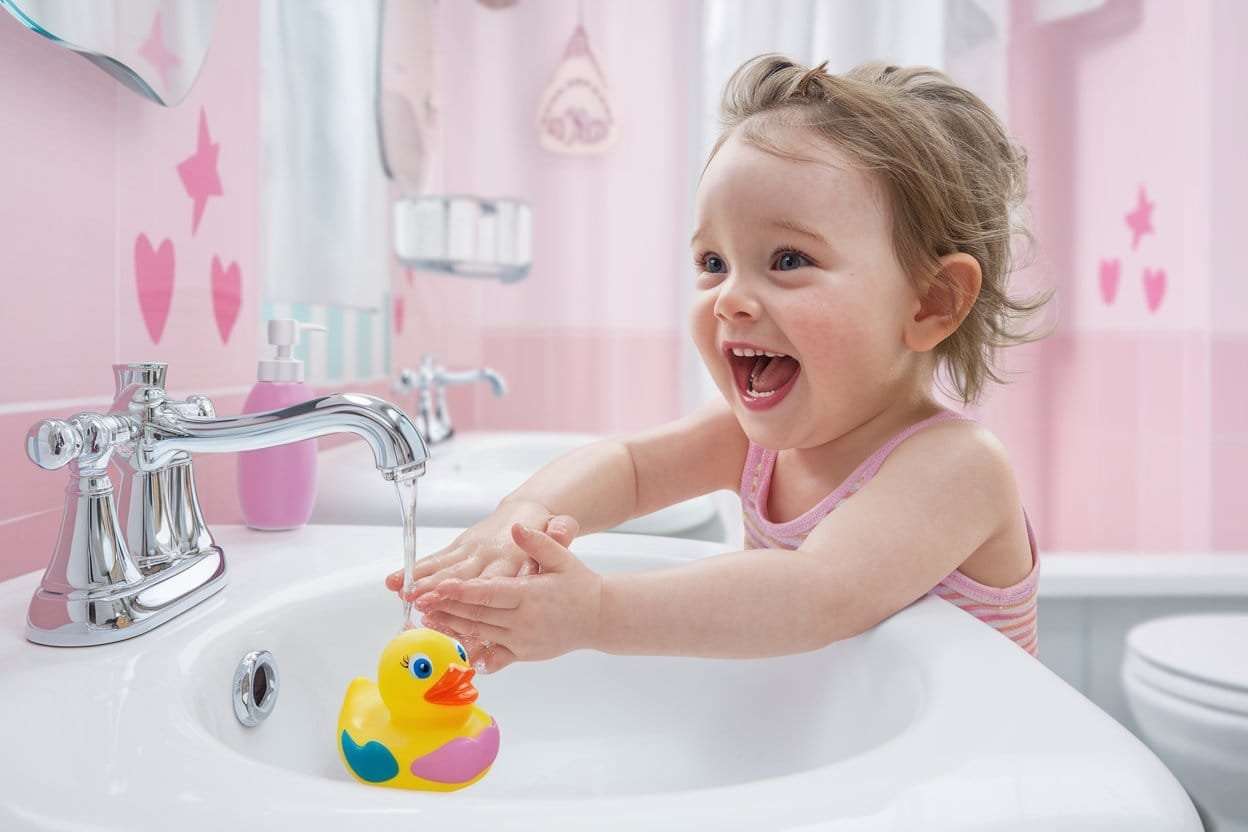The Power of Scent in Shaping Perceptions and Development
The sense of smell is incredibly powerful, particularly in early childhood. It’s directly linked to the limbic system, the part of the brain responsible for emotions, memories, and behavior. This means that scents can evoke strong emotional responses and create lasting memories, making them a powerful tool for shaping a child’s perception of bath time.

Fragrances in Bath Products: More Than Just a Nice Smell

When fun bath products incorporate engaging fragrances, they’re doing much more than just making the bathroom smell pleasant. These scents are actively contributing to:
Emotional Regulation: Certain fragrances have calming and soothing properties. Lavender, for instance, is well-known for its ability to reduce anxiety and promote relaxation. Chamomile is another scent often used for its calming effects. When these scents are incorporated into bath products, they can help to regulate a child’s emotions, making them feel more at ease and less apprehensive about the bath. This is particularly helpful in mitigating the fear of the unknown, as a calmer child is more receptive to new experiences.
Memory Formation: As mentioned, smell is closely linked to memory. Positive experiences associated with pleasant scents can create strong, positive memories. When a child consistently experiences enjoyable fragrances during bath time, they begin to associate the activity with those positive feelings. Over time, the mere smell of their favorite bath product can trigger happy memories and anticipation for bath time, effectively neutralizing the fear of the unknown.

Sensory Integration and Development: Sensory integration is the process by which the brain organizes and interprets sensory information. Fragrances provide an important avenue for sensory exploration. Children learn to differentiate between different scents, strengthening their olfactory sense. This exploration can be particularly beneficial for children who are sensitive to sensory input, helping them to process and tolerate different sensory experiences in a controlled and enjoyable environment.

Creating a Ritualistic and Comforting Experience: A consistent scent can become part of a comforting bath time ritual. This predictability can be very reassuring for children, especially those who struggle with transitions or unfamiliar situations. The familiar fragrance signals that it’s time to relax and enjoy the bath, helping to ease anxiety and promote a sense of security.
Language and Cognitive Development: Talking about scents with children (“This smells like strawberries, doesn’t it?” or “What does this bath bomb remind you of?”) can enhance their language development and cognitive skills. They learn new words to describe smells, make connections between scents and objects, and develop their ability to categorize and compare.
Imagination and Play: Certain scents can spark a child’s imagination and enhance their play. A fruity-smelling bath bomb might inspire a pretend tea party in the tub, while a coconut-scented bubble bath might transport them to a tropical beach. This imaginative play is crucial for a child’s cognitive and social-emotional development, and the addition of fragrance can make it even richer and more engaging.
Bonding and Connection: Sharing the sensory experience of fragrances during bath time can create a special bonding opportunity for parents and children. Discussing the scents, guessing the fragrances, and simply enjoying the pleasant aroma together can strengthen the parent-child connection and create positive, shared memories.

Choosing the Right Fragrances:
While fragrances can be incredibly beneficial, it’s important to choose them wisely:
- Child-Appropriate: Choose fragrances that are appealing to children but not overpowering. Fruity, sweet, and mild floral scents are generally good choices.
- Observe and Adapt: Pay attention to your child’s reactions to different scents. If they seem to dislike a particular fragrance, try a different one.
In Conclusion: The Scent-sational Power of Bath Time
The fragrances in fun bath products are not just an afterthought; they are a powerful tool for shaping a child’s perception of bath time, promoting emotional regulation, and contributing to their overall development. By creating positive associations through engaging scents, you can help your child overcome their fear of the unknown, transform bath time into a joyful ritual, and unlock a world of sensory exploration and learning. The right fragrance can truly make bath time a “scent-sational” experience for both you and your child.
Author Chris Fourie
Previous Story
Conquer the Fear of The Unknown

